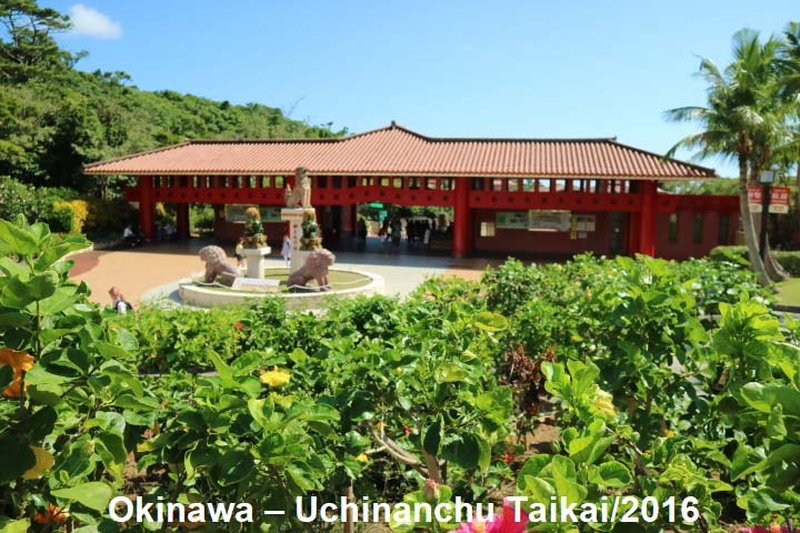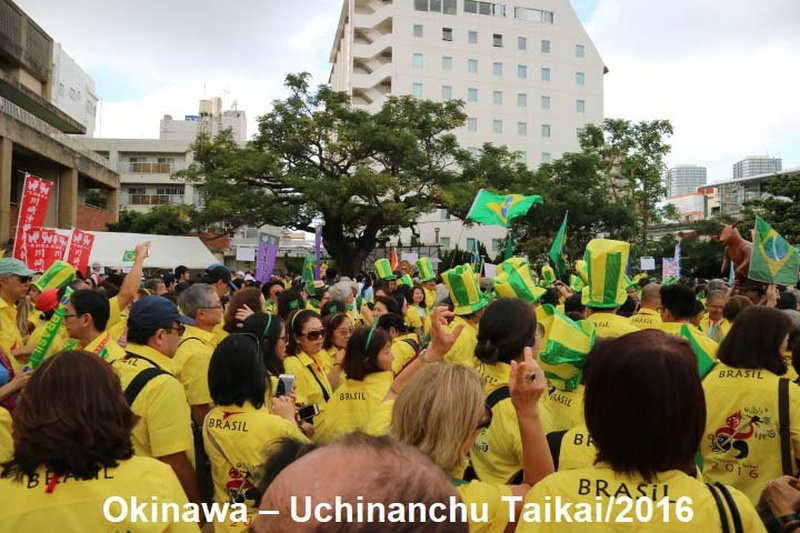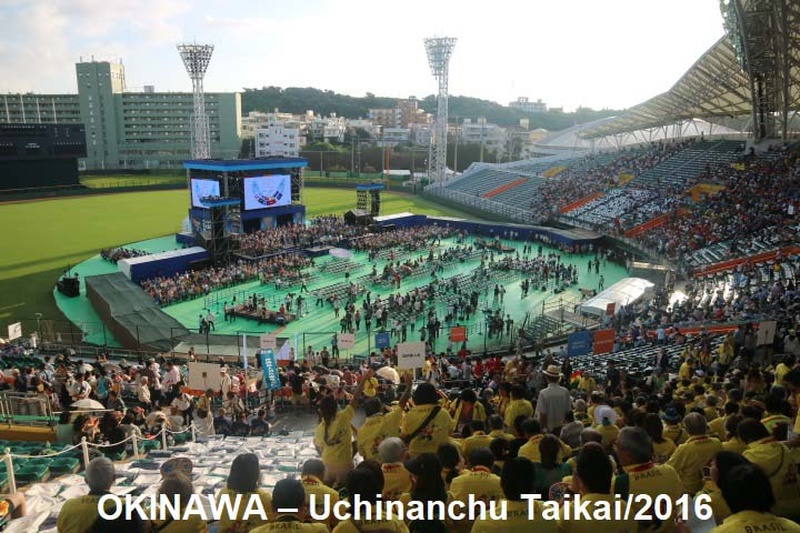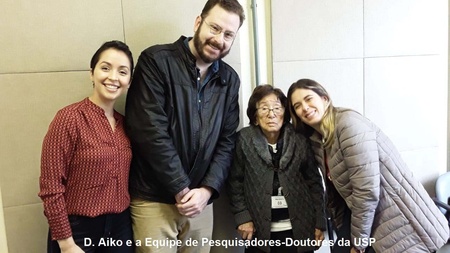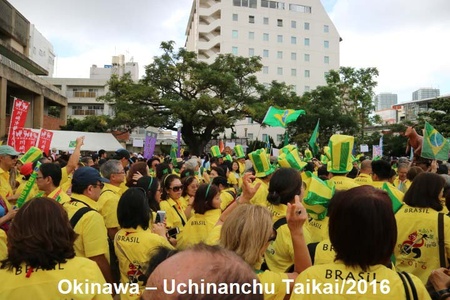Rain or shine, nothing stops Rádio Taissô groups from meeting daily at the traditional Praça da Liberdade in São Paulo to practice community gymnastics. An event that also takes place in several other locations, even in other cities. The instrumental music in the background, which echoes through the speaker, dictates the rhythm of the light and harmonious movements that dozens of people, committed and excited, begin to make. Dressed in character, in all-white gym clothes, including sneakers, they perform a series of physical exercises that serve to prevent a sedentary lifestyle, stress and premature aging, which are harmful to health and well-being. Most of the elderly, all seek to live longer and with quality of life and this has been the concern of a greater number of conscious Brazilians, who want to reach old age with dignity and better health, at a time when life expectancy is only tends to grow.
According to experts' predictions, by 2050 the elderly population is expected to triple in Brazil, reaching 60 million individuals, surpassing that of Brazilian children.
Reaching old age in a healthy and lucid way is nothing more than the reflection of a behavioral attitude, of respect for one's own health and way of living. It is, in fact, a citizen's right.
The longevity
And why do some people manage to live to be 90, 100 years old and even much longer? Obviously, reaching this old age with health and disposition, we reinforce. Is it the influence of a genetic factor or are there other imponderable reasons that lead some privileged people to live longer?
This week, little lady Aiko Higuchi, from São Paulo, who will turn 99 years old next January, was interviewed and evaluated by a group of researchers, doctors in biosciences from USP, the renowned University of São Paulo, which is carrying out research on the Genome Human and Stem Cells. Led by the eminent Doctor Mayana Zats, the working group seeks to discover the reasons for healthy aging and whether longevity is, among other factors, influenced by genetics.
The researchers were amazed by the lucidity, physical disposition and good humor presented by D. Aiko.
It is possible that there is a certain connection, in some cases, but everything leads us to believe that longevity is more the result of behavioral attitudes, care and the proactive stance that citizens have with their health and their lives, in a broad sense. .
Take, for example, the mythical longevity of the inhabitants of Okinawa Island.
This island south of Japan became known for having the largest population of people over a hundred years old in the entire world.
The secrets of longevity in Okinawa have already been the subject of much study and research and have led many scholars to the Island in search of the magic formula for long life.
It may be that the region's pleasant climate, much warmer than in the rest of Japan, and the inhabitants' calmer way of life have an influence, but studies show that there are other equally important reasons that lead many of its inhabitants to reach such advanced ages. .
Writers, such as Héctor Garcia and Francesc Miralles, authors of the book IKIGAI – Live well until you are a hundred years old and others such as Makoto Suzuki and Bradley Wilcox, after long and meticulous research and analysis to understand how the Island's inhabitants live so long and so well, summarized the fundamental principles to achieve the happiness achieved by the centenarians of this region.
The secret of Okinawa Island
A small and charming island where its residents, called Uchinanchu , live healthy and at peace with themselves, only retiring after the age of 80. A place where stress does not exist and cancer and heart diseases are rare. This is Okinawa Island.
The always friendly Uchinanchu have some little secrets to stay happy, nothing that complicated, as we can see. The big answers are in the simplest things. Let's see what they are:
Stay active
Say “no” to a sedentary lifestyle, even after retirement. Continue developing some activity, professional or not, even if it is a “hobby” or voluntary work. With this, you are applying the concept of Ikigai , which would be defined as “having a reason to get up every morning, with joy and disposition”. It’s about being happy with life!
Don't stress
It is a message to São Paulo residents, residents of the Capital of São Paulo. Take it easy, stress is not good for your health, on the contrary. It is known that continuous stress reduces our concentration, our memory and even our sex life is impaired. The inhabitants of Okinawa teach that one of the secrets of life is to do everything at its own time. Sleeping well, keeping your surroundings in order and practicing meditation are some ways to slow down.
Do not give in to the sin of gluttony. Eat less.
Gastronomy plays a fundamental role in the quality of life of Okinawans. Get used to a healthy diet, based on lots of fruits, vegetables and fish. Get into the habit of hara hachi bu , which means a person should eat until they feel 80% full, to limit their calorie intake. The Okinawans consume more soy than any other population on earth. Soy is rich in flavonoids. Drink a cup of green tea daily.
Develop friendship
Try to create close and sincere bonds with neighbors; develop strong bonds within your community, as if you were a real family.
Seek to create this feeling of belonging and mutual help. It’s about feeling part of the community, about being important and valued. This is what gives meaning to life and helps increase everyone's life expectancy.
Physical activities
Avoid a sedentary lifestyle, doing simple exercises such as walking daily, avoiding the use of transport; use the bicycle to work. Be optimistic, don't complicate life.
Contact with nature
Okinawans try to cultivate a vegetable garden or even a small plantation of vegetables, teas and mangoes, interacting with nature.
Optimism
The researchers found that elderly people on the Island always smile, even when queuing in supermarkets and in front of strangers, always showing a positive and welcoming attitude towards life. This is partly because they feel valued as individuals, even when they are elderly, strongly benefiting their mental and physiological health.
Gratitude
In Okinawa, people dedicate time in their days to being grateful for the present moment, seeking to eliminate negative emotions and focus only on what is good. According to the testimony of my friend Dinho who was already there, it was moving to see the warm welcome with which elderly Okinawans receive visitors, especially when they are Brazilian Nikkei. With an effusive and warm handshake, they were treated as if they were relatives returning to their homeland, like heroes. Truly touching!
The various studies and research reveal that, unanimously, the formula for longevity in Okinawa, where these extraordinary long-lived people live, is supported by three basic pillars: daily physical activity, a relaxed, not to say peaceful, pace of life and a good and healthy eating.
Okinawans in Brazil
The participation of Uchinanchu descendants in Brazil is significant. They certainly form the largest community outside of Japan, where São Paulo is home to around 70% of Okinawans living here. There are 150 thousand people, including immigrants and descendants, and they all bring the striking characteristics that highlight the style of being Uchiná: the collective spirit and the joyful and participatory way.
Tradition, culture and customs are maintained to this day by the new generation of descendants, through the holding of major events that seek to value and highlight music, typical dances, arts and cuisine.
It can be said that the Okinawans, with their cheerful and expansive way of being, their community spirit and even their physical characteristic, being darker than the other Nikkei, have integrated themselves into Brazilian society so well that they clearly stand out in various activities, such as commerce, politics, sports, arts and even the racial miscegenation that has been occurring on the part of their descendants.
I am unaware of studies on the longevity of Okinawans in Brazil, but I wouldn't be wrong if I say that it is in line with the performance of other Brazilian Nikkei of the Third Age, who are living increasingly longer and better lives.
Although she is not an Okinawan and has never set foot on the famous island, Ms. Aiko, a Japanese from Yamaguchi Prefecture, almost 99 years old, when asked about her advanced age, shrugs off a possible genetic influence and responds bluntly: “The secret is to work, not to settle! Waking up early, taking care of housewife duties and talking a lot, making friends. But, I also like going out, going for walks, traveling from time to time and eating in restaurants! I'm glad I have sons, daughters-in-law and grandchildren who give me these pleasures”, she ends with a loud laugh.
To this scribe's pride, D. Aiko is my mother!
Whether on the Island of Okinawa, with its magic and charm, or here, in our Brazilian Brazil, as D. Aiko shows, living longer and better is a matter of attitude towards life. And, above all, surround yourself with happy people and cultivate friendships!
Ichaariba choode (Once we meet, we are brothers)
Y uimaru (the inexorable bonds of Okinawan solidarity)
PS: My thanks to my friend Carlos “Dinho” Ianase for providing the photos that frame the unpretentious text. Enchanted by the allure of Okinawa Island, I learned that he plans to revisit it next year. It's a privileged one!
© 2019 Katsuo Higuchi


